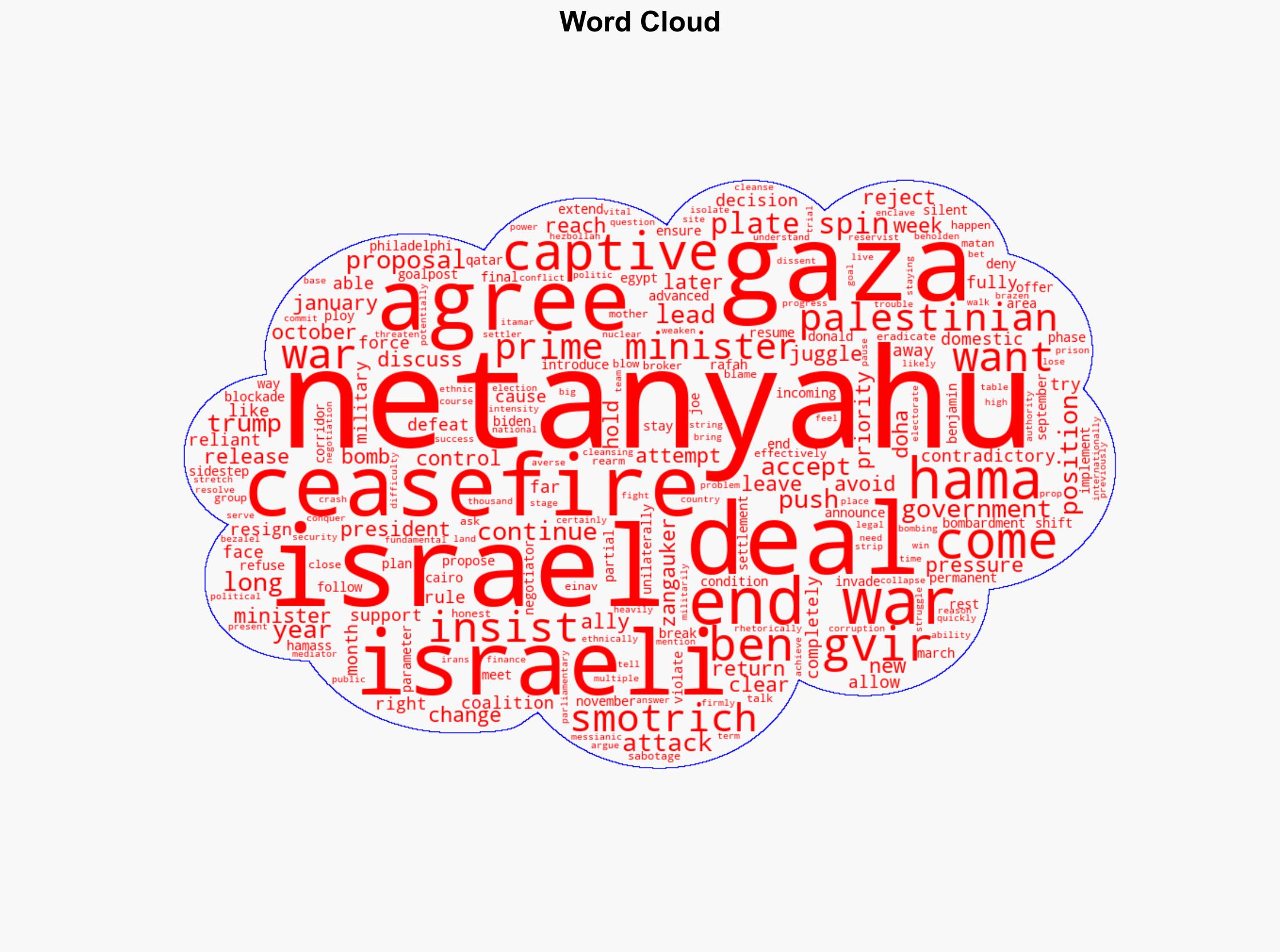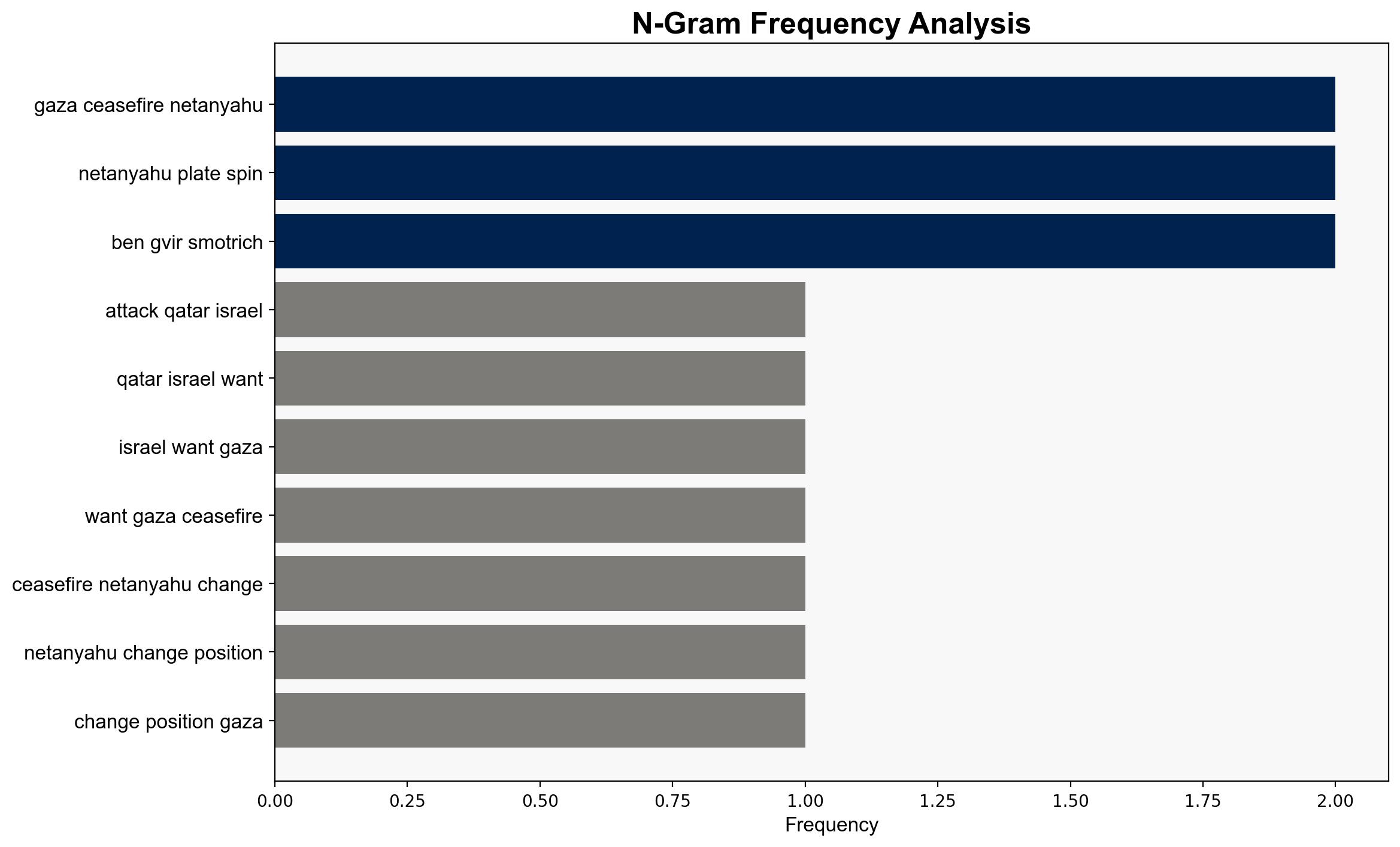Attacking Qatar shows Israel doesnt want a Gaza ceasefire – Al Jazeera English
Published on: 2025-09-14
Intelligence Report: Attacking Qatar shows Israel doesn’t want a Gaza ceasefire – Al Jazeera English
1. BLUF (Bottom Line Up Front)
The analysis suggests a moderate confidence level that Israel’s actions, particularly under Netanyahu’s leadership, are strategically aimed at maintaining a status quo rather than achieving a lasting ceasefire with Gaza. This is supported by evidence of shifting negotiation terms and internal political pressures. Recommended action includes diplomatic engagement to stabilize the region and address underlying political dynamics.
2. Competing Hypotheses
1. **Hypothesis A**: Israel, under Netanyahu, is deliberately avoiding a ceasefire with Gaza to maintain political leverage and satisfy domestic political factions.
– **Supporting Evidence**: Frequent changes in negotiation terms, refusal to extend ceasefires, and internal political pressures from far-right factions.
2. **Hypothesis B**: Israel’s actions are reactive and driven by security concerns, with no deliberate intent to avoid a ceasefire.
– **Supporting Evidence**: Security threats from Hamas, historical context of conflict, and strategic military considerations.
Using ACH 2.0, Hypothesis A is better supported due to consistent patterns of negotiation disruption and political maneuvering.
3. Key Assumptions and Red Flags
– **Assumptions**: Netanyahu’s political survival is contingent on appeasing far-right factions; Israel’s military strategy is influenced by domestic politics.
– **Red Flags**: Potential bias in source reporting; lack of direct evidence linking specific actions to Netanyahu’s political strategy.
– **Blind Spots**: Limited insight into internal Israeli military assessments and decision-making processes.
4. Implications and Strategic Risks
– **Geopolitical**: Continued instability in Gaza could escalate into broader regional conflict, affecting neighboring countries.
– **Economic**: Prolonged conflict may strain Israel’s economy and international relations.
– **Psychological**: Ongoing conflict could exacerbate public dissent within Israel, affecting political stability.
– **Cascading Threats**: Potential for increased radicalization and recruitment by extremist groups in response to perceived aggression.
5. Recommendations and Outlook
- Engage in multilateral diplomacy to encourage a sustainable ceasefire agreement.
- Monitor internal Israeli political dynamics to anticipate shifts in policy.
- Scenario Projections:
- Best: Successful diplomatic intervention leads to a stable ceasefire.
- Worst: Escalation into a broader regional conflict involving multiple state actors.
- Most Likely: Continued cycles of negotiation and conflict without a lasting resolution.
6. Key Individuals and Entities
– Benjamin Netanyahu
– Itamar Ben Gvir
– Bezalel Smotrich
– Hamas
7. Thematic Tags
national security threats, geopolitical dynamics, regional stability, political strategy





